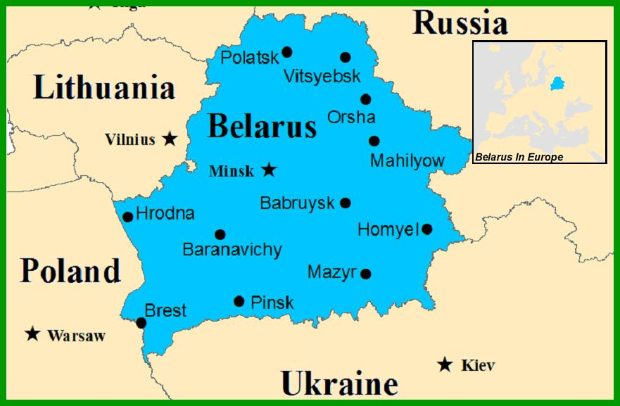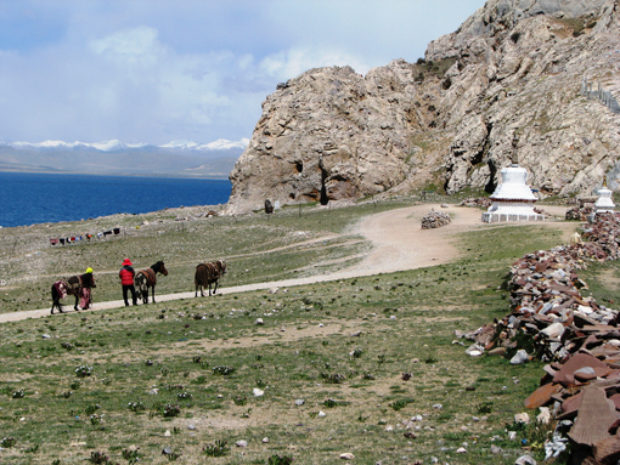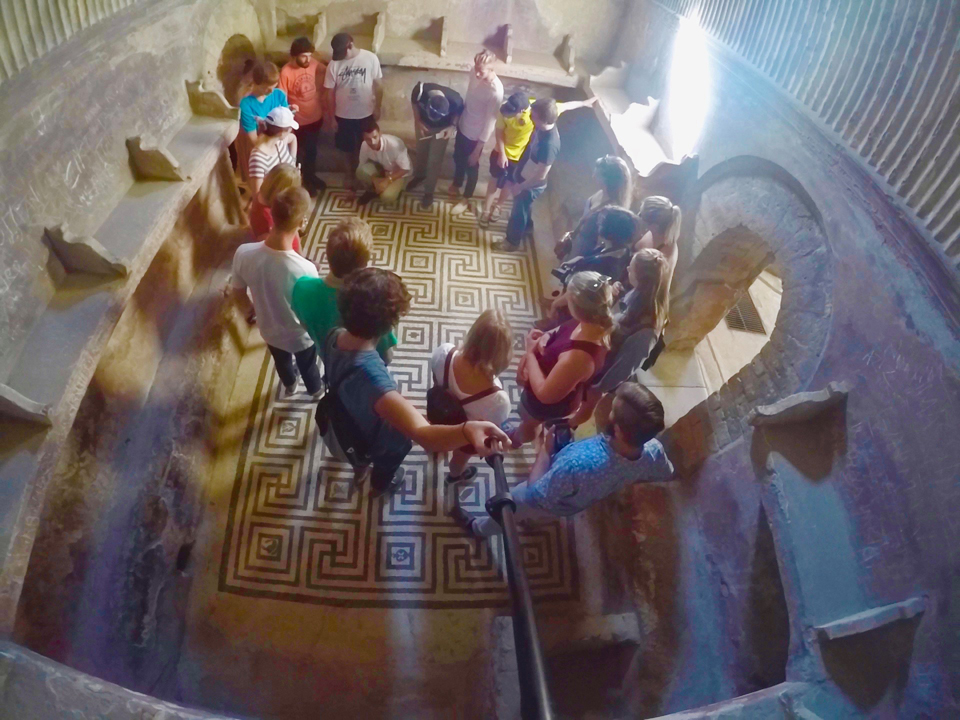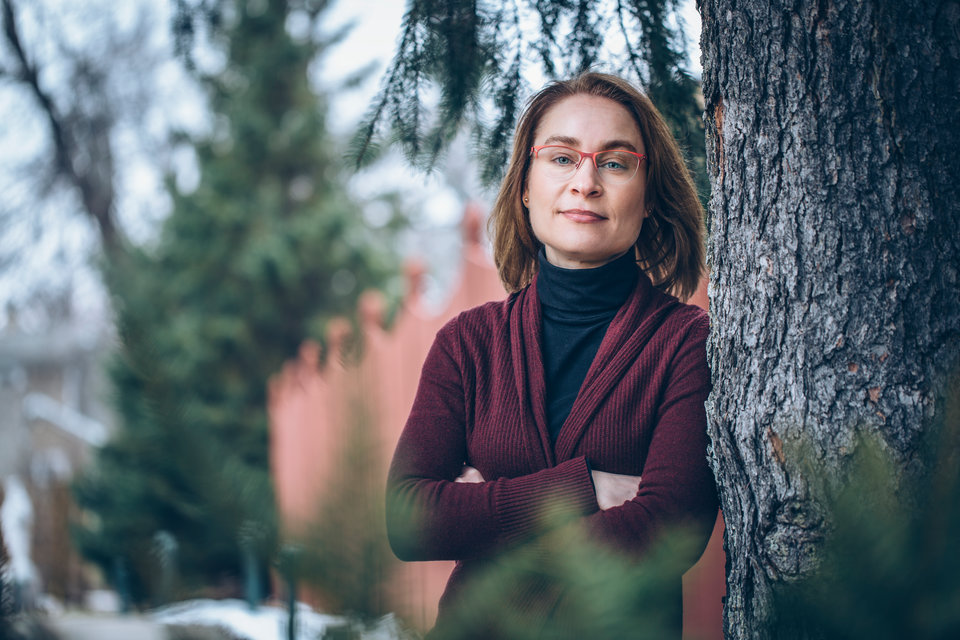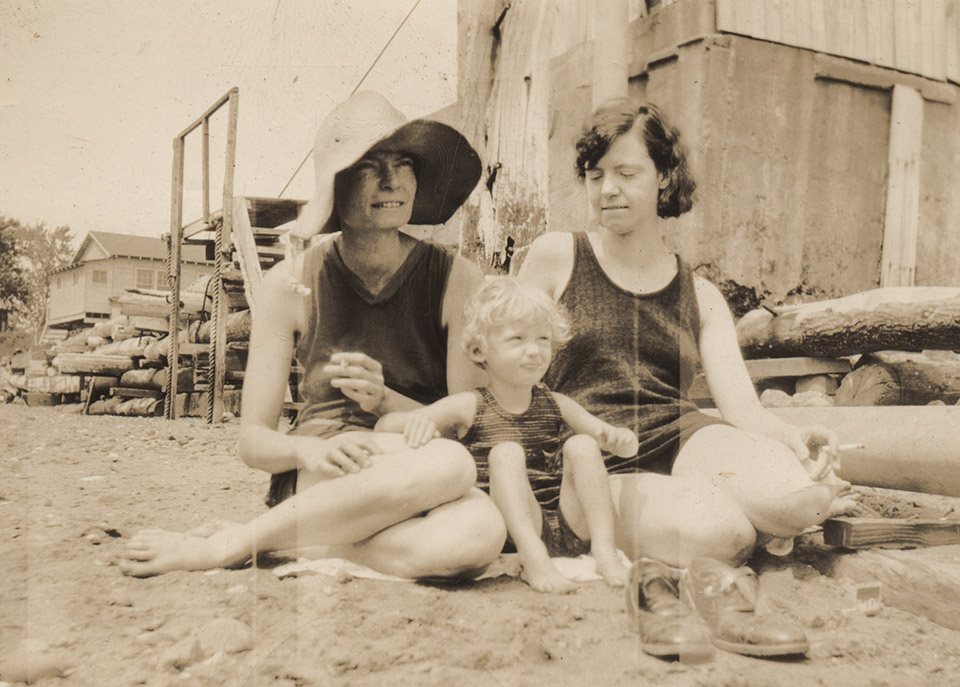Belarus, a small country lying east of Poland and west of Russia, has long served as a puzzle for map makers. Where, asks the cartographer, does the country belong? For some, the country clearly belongs in Europe, both as a matter of geography and culture. After all, the territory on which Belarus rests was once part of a vibrant European polity, the Polish-Lithuanian Commonwealth (1569-1795). While those who argue that Belarus is a European state admit that its current government falls short of the liberal ideals of Western democracy, they nonetheless consider Belarus’ history, culture and future to be fully European.For others, Belarus is firmly outside the European orbit, a point brought home quite clearly when crossing the border from Poland into Belarus, a transition which requires the traveler to switch from the familiar letters of a Latin alphabet to the utterly unfamiliar Cyrillic. Religious traditions also change abruptly as the onion dome rises in place of the spire and the rites of Orthodoxy are performed in lieu of the Roman Mass. Western folk traditions also vanish, replaced by images of the Cossack and Tatars riding out of the steppes being driven by the ethnic heritage of the Slavs. The influences of the “East,” namely Russia and the former Soviet Union, are readily apparent.The issue is further complicated by the tumultuous history that has shaped Belarus and its neighbors. Like other nations that find themselves at the borderland of empires, Belarus has long been subject to the strategic necessities of one or another conqueror, including the Grand Duchy of Lithuania (1385-1569), the Polish-Lithuanian Commonwealth, the centuries-long Russian empire, and more recently, the Soviet Union. The ambitions that drove armies centuries ago often remain just beneath the surface, a fact illustrated by a study of the region’s place-names. Thus, for many Belarusians, Vilnius is most certainly a Belarusian city, just as surely as Wilno is, for Poles, a Polish city; neither is particularly troubled by the fact that the city is the capital of modern-day Lithuania.The complicated tangle of identity, culture, politics and power that defines not only Belarus but also many of its neighbors has long intrigued Kenneth Kemp, an associate professor of philosophy at the University of St. Thomas. Trained in Slavic languages and culture, Kemp has made a virtual second home of the region. In the past year, for instance, Kemp was in Russia attending a Russo-Anglo-American conference on the philosophy of religion and in Poland to direct a study-abroad course on the teachings of Pope John Paul II at the Catholic University of Lublin. In August, he was in Poland again working on a translation of a philosophical work of Karol Wojty?a (John Paul II).Several years ago, Kemp approached the Political Science Department with the idea of developing a January Term course centered on the politics of what then-Secretary of Defense Donald Rumsfeld referred to as the “New Europe.” One part of the 2007 J-Term course that eventually took shape, and which will be offered again in January 2011, was a visit to Belarusian State University (BSU) for meetings with professors and students in the Faculty of International Relations, including dean of the faculty, Victor Shadurski.Since this initial meeting in Minsk, a robust teaching and research partnership has developed. For instance, Shadurski has taken advantage of St. Thomas’ outstanding video-conferencing resources to deliver a number of real-time lectures in several St. Thomas political science classes. Winston Chrislock, of St. Thomas’ History Department, returned the favor by talking to Shadurski’s students about the history of U.S. foreign policy. Kemp and I also developed a collaborative project between BSU and St. Thomas students as part of an Aquinas Scholars class that focused on the importance of nationalism in the modern world.
Proving the point that the best projects are those that can take advantage of unforeseen opportunities, the partnership was deepened substantially with the addition of Renee Buhr to the department’s faculty in 2008. Buhr’s appointment grew out of a 10-year review process, which determined that there was a need to more aggressively develop our capacity in the field of international relations and comparative politics. The result was the addition of two faculty members, Dr. Arijit Mazumdar, who specializes in the politics of South Asia, and Buhr, who brought with her an interest both in nationalities studies and post-Soviet countries.Since Buhr’s arrival, we have developed a number of research projects, at the core of which lie issues related to the politics and expressions of national identity, a notion widely assumed but one that can be conceptualized in many, and very different, ways. Some scholars adhere to a “civic” notion of identity that emphasizes loyalty to the state and its values; others ascribe to an ethnic- or language- based identity.Consider the case of the United States. For some, being a “real American” means accepting and acting upon core beliefs such as democracy, human rights, religious tolerance and so on. Others identify certain symbols that embody attributes central to their idea of the American character. These types of ‘civic nationalism’ are necessary for a state lacking a common ancestral heritage.
For other countries, however, it is ancestry, or at least the ability to claim a common ancestry, that makes the nation and ultimately legitimizes the actions of the state. “Primordialists” argue that it is the lure of ancient histories, customs, folkways and myths that allows the modern state to so powerfully affect the sentiments and actions of its citizens.Understanding Belarusian nationalism is much more than an interesting academic exercise. Not only is Belarus one of a number of states that comprise Russia’s “near abroad” while simultaneously resting on the border of the European Union, it, along with Ukraine, serves as a primary transitway for Russian gas supplies that, at least in the near-term, are crucial to satisfying western Europe’s energy appetites. Unrest occurring throughout the region, i.e., Georgia, Kyrgyzstan, and quite possibly Ukraine in the near future, and the dangers such unrest poses to U.S., European and Russian relations, offer some stark reminders as to why policymakers should take an interest not only in Belarus but in the many other post-Soviet states.1For many, particularly for those who harbor the idea of a re-emergent greater Russia, the idea of Belarusian nationhood is fundamentally suspect. These skeptics argue that Belarusians are essentially brothers to Russians and Ukrainians and that the country lacks even the rudimentary elements of a primordial nation. They also point out that the borders of the state are largely the product of a Soviet nationalities policy that more often than not arbitrarily assigned ethnicities and territories. On the other hand, there are others who hope that Belarus will embrace its Western roots from the time of the Polish-Lithuanian Commonwealth, and join with the rest of “Europe” in opposition to its Russian neighbor.Neither of these outcomes seems very likely. Based in part upon two recent BSU administered surveys developed in partnership with Shadurski, we are of the opinion that despite the difficulty of identifying primordially grounded nationalist identifiers, i.e., language, religion, folk heroes and the like, there nonetheless is emerging a fairly pronounced civic nationalism that would find little to approve of in a foreign policy that tilts strongly either East or West.2 Instead, a third way, or what Grigori Loffe refers to as a “creole” foreign policy would resonate most strongly with a population anxious to assert a strongly independent Belarusian presence and newly discovered sense of self. Whether the regime can sustain such a course in the face of a West still leery of authoritarianism and a Russia apparently determined to maintain dominance in its near-abroad represents perhaps the most difficult foreign and domestic policy challenge facing the regime.The possibility of an emergent civic nationalism also raises some very interesting questions about ethnic Belarusians living outside of the “mother country.” Unlike émigré populations from Belarus’ neighbors, most notably Ukrainians and Lithuanians, transplanted Belarusians have seldom demonstrated strong cultural or diasporic sensibilities. For instance, while there are a number of identifiably Belarusian enclaves in the United States, there is little evidence of extended ties either among the enclaves or with “the folks back home” except as it concerns specific familial relationships. It is reasonable to speculate, however, that the successful establishment of a Belarusian state will bring with it the one thing that most diasporas need, namely a place to link back to both practically and in their collective imagination. Particularly if the Belarusian authorities are skillful in managing their relations with this population, we might well see the emergence of a true Belarusian diaspora.As we constantly tell our students, a successful research project is an equal mix of luck and hard work combined with a willingness to take advantage of unexpected opportunities. Our work in and about Belarus, a small country rich in history and promise, represents in full measure all of these qualities.1 This fall, Renee Buhr is teaching a topics course on The Politics of Post-Soviet States.2 The results of the surveys are reported in two papers co-authored by Buhr, Shadurski and Hoffman: “Post-Soviet Nationalism and an Emergent Russia: the Case of Belarus,” presented at the International Studies Association-Midwest/Central Slavic conference (November 2009); and “Constructed and Primordial Identity on the Edge of Russia: Belarus, Ukraine, and Lithuania in Comparative Perspective,” presented at the Association for the Study of Nationalities conference (April 2010). Both of the papers are under review for publication in professional journals.
Read more from CAS Spotlight
